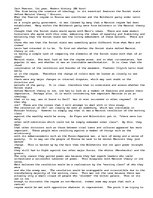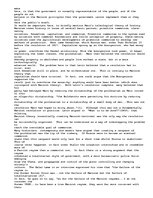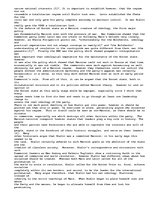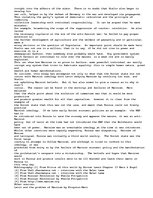Iain Pearson, 1st year, Modern History (BA Hons)
'Far from being the creature of ideology, in its essential features the Soviet state defied Marxist theory,' Discuss.
When the Tsarist regime in Russia was overthrown and the Bolshevik party under Lenin ruled as a single party government, it was claimed by many that a Marxist regime had been established. Many within the Bolshevik party were firm believers in the Marxist theory and thought that the Soviet state would agree with Marx's ideas. There are some modern historians who agree with this view, embracing the ideas of equality and fraternity and
believing that the Soviet state was the living embodiment of these beliefs. There are also those who see that the Soviet state was something quite different from what Marx and indeed Lenin had intended it to be. To find out whether the Soviet state defied Marxist theory or not, is hardly a simple task of comparing the elements of the Soviet state with that of an ideal
Marxist state. One must look at how the regime arose, and in what circumstances, how popular it was, and whether it was an inevitable manifestation. It is clear that the chief coordinator of the revolution and founder of the movement, Vladimir Illyich Lenin died early on in the regime. Therefore the change of rulers must be looked at closely to see whether
there were any major changes or internal disputes, which may cast doubt on the direction and beliefs of the party. It is clear, therefore that to understand and assess whether the Soviet state defied Marxist theory or not, one has to look at a number of features and assess their importance. …





